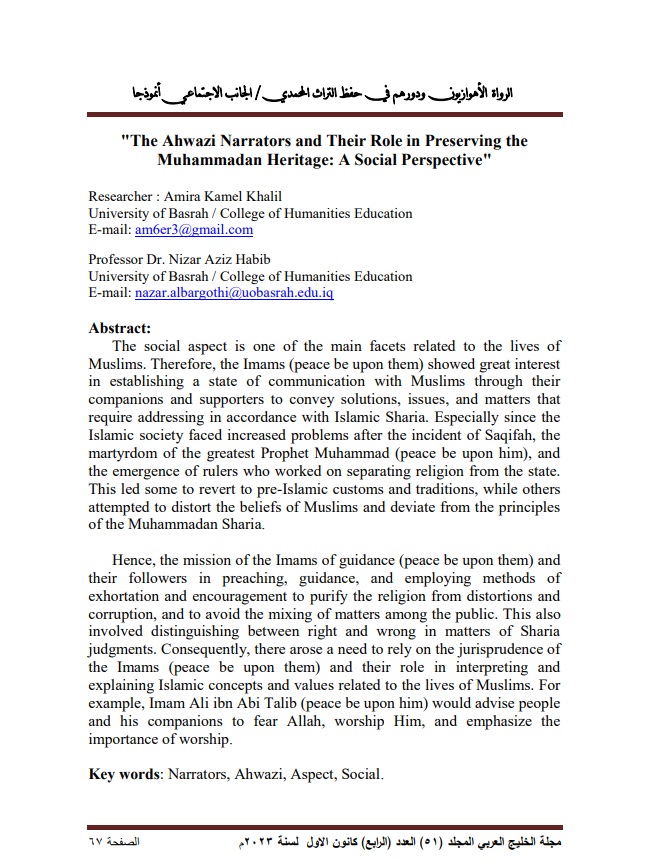The Ahwazi Narrators and Their Role in Preserving the Muhammadan Heritage: A Social Perspective
Keywords:
Narrators, Ahwazi, Aspect, SocialAbstract
The social aspect is one of the main facets related to the lives of Muslims. Therefore, the Imams (peace be upon them) showed great interest in establishing a state of communication with Muslims through their companions and supporters to convey solutions, issues, and matters that require addressing in accordance with Islamic Sharia. Especially since the Islamic society faced increased problems after the incident of Saqifah, the martyrdom of the greatest Prophet Muhammad (peace be upon him), and the emergence of rulers who worked on separating religion from the state. This led some to revert to pre-Islamic customs and traditions, while others attempted to distort the beliefs of Muslims and deviate from the principles of the Muhammadan Sharia.
Hence, the mission of the Imams of guidance (peace be upon them) and their followers in preaching, guidance, and employing methods of exhortation and encouragement to purify the religion from distortions and corruption, and to avoid the mixing of matters among the public. This also involved distinguishing between right and wrong in matters of Sharia judgments. Consequently, there arose a need to rely on the jurisprudence of the Imams (peace be upon them) and their role in interpreting and explaining Islamic concepts and values related to the lives of Muslims. For example, Imam Ali ibn Abi Talib (peace be upon him) would advise people and his companions to fear Allah, worship Him, and emphasize the importance of worship.




